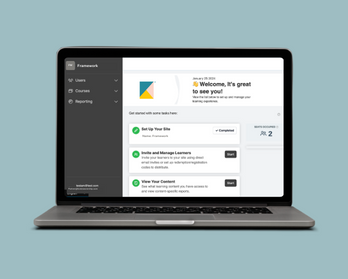Are you having trouble qualifying for a mortgage? You know you can make the payments, but maybe your credit score is a wreck after a rough patch. Maybe you lost your home in the foreclosure crisis. If only there were a way to buy a home despite all that …
Enter the land contract. A land contract can be a fast, simple, low-cost workaround. Or it can be a major mistake.
Also referred to as “contracts for deed,” “bonds for deed,” “agreements for deed,” and “land installment contracts,” these contracts are not mortgages. They’re a form of seller financing. And unlike mortgages, which give you a variety of legal protections, land contracts are largely unregulated.
Many nonprofit housing organizations offer land contracts as a bridge to homeownership, and there are honest individual sellers who use them. But because they’re so unregulated, they attract more than their share of con artists. Buyer beware!
Read on for the good, the bad, and the very ugly of land contracts.
The key takeaway is this: There are only two safe ways to do a land contract. One is through a nonprofit housing agency. The other is with a real estate attorney by your side.
How does a land contract work?
Land contracts are often confused with lease-purchase, or rent-to-own, agreements — another poorly regulated form of seller financing that has its own good, bad, and ugly. But the two are different legally. With a land contract, you’re more owner than renter. Land contracts aren’t standardized, and the laws that do exist vary by state, but here’s the basic arrangement:
- The seller finances the purchase, not a bank
- You pay for the property in monthly installments, and once you’ve paid the full amount the house is yours
- Until then, the seller remains the legal owner of the home; you just have the right to occupy it
- Typically, you pay in full several years into the contract, in the form of a large “balloon payment” (most buyers seek out a mortgage at this point)
- Unlike a tenant, you’re responsible for maintenance, property taxes, and home insurance
- The seller doesn’t have the legal responsibilities of a landlord
The good: Fast, cheap, easy
Why do a land contract? Again, land contracts can be a simple, low-cost way to buy a home, especially when you can’t qualify for a traditional mortgage loan. That’s why nonprofits use them to make homeownership a reality for those of us with modest incomes and credit problems. Here are some of the potential advantages:
- You can become a homeowner sooner, before you’re able to qualify for a conventional mortgage
- The down payment can be negotiated; it might even be zero
- Most of the time, you avoid all the usual bank fees
- Closing costs are much lower
- You might qualify for tax advantages related to homeownership
Sounds good, right? Not so fast …
The bad: Few legal protections for buyers
The traditional mortgage process might be cumbersome and expensive, but that’s because it goes to great lengths to protect everyone. Land contracts offer homebuyers few legal protections. In many ways, they give you the responsibilities of homeownership without the benefits. Meanwhile, the seller has none of the responsibilities of a landlord. Here are some of the risks:
- The seller retains the right to the property until you pay in full, no matter how much money you put into it
- If you miss any payments, the seller can quickly cancel the contract and keep every cent you’ve paid (state laws vary on how this goes down)
- In some states, these contracts aren’t even put on the public record, leaving you especially vulnerable
- No professional appraisal is required, and without one, you risk paying more than the home is worth
- Unless you pursue it yourself, there won’t be a thorough title examination — a safeguard that all lenders require
- If the seller has a mortgage on the property, there’s no guarantee they’ll pay it, so if the home is foreclosed, your money is gone
- If the seller has a lien or second mortgage on the property (you might not even know about it), those claims might legally supersede yours
- You might not quality for a mortgage when the balloon payment is due, and if you can’t pay, you’ll probably be left with nothing
- If the true condition of the property is not disclosed, which is often the case, you could end up struggling to pay for expensive repairs
You can see why community programs offered by nonprofit housing agencies are the best way to go down the land contract path. When the seller is holding all the cards, you want to know they have your best interests at heart!
The ugly: Predatory land contracts are rampant
Because land contracts offer so few legal protections, they’re ripe for fraud. And in the continuing aftermath of the foreclosure crisis — which disproportionately affected communities of color — predatory land contracts have reached viral proportions. Once again, minorities are the primary targets, according to a National Consumer Law Center report.
The fine print of these scam contracts is full of traps designed to cancel the deal and take all your money. “They will tailor the contracts to get around whatever protections a state does have,” says Brittany McCormick, a staff attorney with the nonprofit law firm Mid-Minnesota Legal Aid.
One wrong move, and you’re out on the street. Then the scammer starts the cycle all over again with a new buyer.
“We’re seeing it all over the country,” McCormick says. “A lot of my clients put huge sums of money down, tens of thousands of dollars that is gone as soon as the contract is over.”
The alternative: Work toward getting a standard mortgage
If you can’t get into a land contract the safe way, your best option might be patience. Finding a home sooner rather than later isn’t worth risking everything. So work on qualifying for a traditional mortgage loan. Here are our top tips:
Sign up for our online homebuyer education course. It’s fast and convenient, and it can qualify you for first-time homebuyer loans and programs that make buying a home more affordable.
Meet with a homeownership advisor. They’ll help you think through your situation and outline an action plan, usually for free. Search our network of nonprofit partners for a professional near you.
Start rebuilding your credit score. As you probably know by now, a low credit score can make getting a mortgage almost impossible. Raising it takes time, and while it might not be easy, it is pretty straightforward. Here are the six best ways to do it.
Be cautious with credit repair services. Some of them are scams. Visit the Consumer Financial Protection Bureau for advice on how to tell a scammer from a reputable credit counselor.




